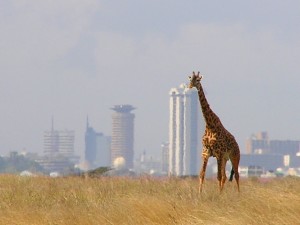 The first openly homosexual candidate in Kenya is running for a senate seat, reports state.
The first openly homosexual candidate in Kenya is running for a senate seat, reports state.
David Kuria is the co-founder of the Gay and Lesbian Coalition of Kenya (GLCK). While homosexuality is illegal in the country, it is stated that law enforcement rarely prosecutes those that are discovered to be involved in the homosexual lifestyle. According to polls in recent years, the majority of Kenyans reject homosexuality as being unnatural.
Kuria, 40, states that he sees homosexual men as being at high risk for HIV, and has asked the National Aids Commission to include them as a high risk group.
“At first the woman in charge told us we were attention-seekers. But after they released the Kenya AIDS survey and modes of transmission, they started seeing the things that we were telling them: that gay men were a high HIV risk group, and that this needed to be addressed,” he told reporters with All Africa.
Kuria says that he plans on focusing on a variety of issues if elected, especially helping the poor.
“My county Kiambu is not the poorest county in Kenya, but those who are poor in Kiambu are really, really poor, and many times they cannot escape that cycle of poverty,” he explained. “What we want to do is create small projects, like rabbit farming for example, to help them break that cycle.”
He said that sanitation is another issue that he seeks to address.
“[I]n Kenya people still die from easily curable diseases,” he explained. “If we approach the issue from a social perspective – for example, improving sanitation; if we had proper sanitation facilities where people can simply wash their hands after visiting the toilet, we would prevent many water borne diseases, like typhoid and diarrhea, which is one of the main causes of death for children age five and below.”
Kuria admits that he is a bit surprised that he was able to get this far considering that homosexuality has been criminalized in the nation. He says that in the past generally people have politely declined to listen to his message.
“‘Being able to run in and of itself is a huge feat. It relates to the new constitution we have in Kenya, where no one can stop me,” he said. “I knew from my experience in GALK that if you speak about [homosexual] rights, you look at the faces of people and you can see that most of them are basically turned off. That is, if they are polite enough to stay in the room and listen to you.”
Kenya’s national election is in March 2013.
Become a Christian News Network Supporter...


